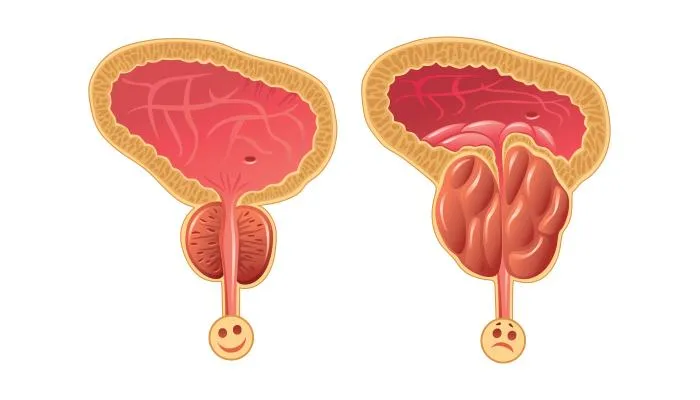Is Your Prostate Enlarged?
March 30, 2021
An enlarged prostate is quite a common condition. Around 50-60% of men aged more than 50 years have an enlarged prostate. Enlargement of the prostate gland is common as men age. The condition is called benign prostatic hyperplasia or BPH.
The urethra, which is a hollow tube responsible for carrying urine out of the body, is surrounded by the prostate gland. With the prostate gland enlargement, the urethra might get squeezed or partially blocked. This results in problems with urination.
The condition of an enlarged prostate is very common among older men. Among men aged 51-60, the condition affects more than 50% of individuals. In fact, BPH is prevalent in around 90% of men older than 80 years.
While the condition may cause some complications, it is only linked to the aging process in men and has no relation to cancer. There is no clear understanding as of now regarding the exact causes of an enlarged prostate. However, there might be a relation between this condition and hormonal changes as men age. If the condition isn’t treated, it might cause further issues with the bladder, kidney or urinary tract.
What are the indications that your prostate might be enlarged?
A lot of men with enlarged prostate might not experience any symptoms at all. In some cases, the symptoms may show up in the form of a lower urinary tract infection. The symptoms of BPH ranges from mild and hardly noticeable to severe. However, the symptoms aren’t necessarily more severe if the prostate is enlarged to a great extent and vice versa.
In most cases, men only see a urologist because waking up frequently at night for urinating gets frustrating. Men might feel the need to urinate every 15-20 minutes even while working at a desk job. So, the main factor that results in the diagnosis of enlarged prostate is the degraded quality of life. Your prostate might be enlarged and you might not have any clue regarding it. You are more susceptible to developing the condition as you age. You are likely to seek treatment only if it has a serious effect on your quality of life.
Certain symptoms may worsen with emotional or physical stress or due to cold weather. The condition might also get worse because of certain over-the-counter medications, including diphenhydramine, oxymetazoline spray and pseudoephedrine. Few prescription medications like antidepressants, pain medication, testosterone, and water pills may also have a negative effect on BPH.
Some common symptoms associated with an enlarged prostate include:
- Issues like straining and hesitancy while starting urination
- Weak flow of urine
- Dribbling after you have urinated
- Feeling of the bladder not being completely empty
- Feeling pain while urinating
- Having the urge to urinating again in a few minutes
- Needing to wake up at night for urination
- An uncontrollable and sudden urge to urinate
- Frequent urination
You should contact your doctor immediately if:
- You are unable to urinate completely
- Your urination is painful and you experience chills, fever and body aches
- You experience pain the lower back, below the rib cage
- You notice pus or blood in your semen or urine.
How is the condition diagnosed?
Your doctor will diagnose the condition of BPH by performing a physical examination and asking you questions about your symptoms. The doctor may also perform a digital rectal exam and a urine test. To rule out the possibility of prostate cancer, your doctor might also recommend a prostate-specific antigen test. While BPH and prostate cancer have very low association, they may show similar symptoms.
Treatment
Treatment at home might be sufficient to keep the condition under control if the symptoms are mild or moderate and not too bothersome. You may need to consult your doctor regularly to check the symptoms and make sure the condition hasn’t caused any related problems.
Since the condition of an enlarged prostate is not curable, the treatment involves the reduction of the symptoms. The type of treatment you undergo is dependent on the severity of the symptoms, how bothersome they are, and if there is any complication. The treatment is likely to be more aggressive if the symptoms are too irritating. Surgical treatment may be required for treating complications arising from an enlarged prostate, such as kidney damage and bladder stones.
NOTICE BOARD
CONTACT US
CONTACT US
 Book Appointment
Book Appointment


.svg)
.svg)
.svg)
.svg)








